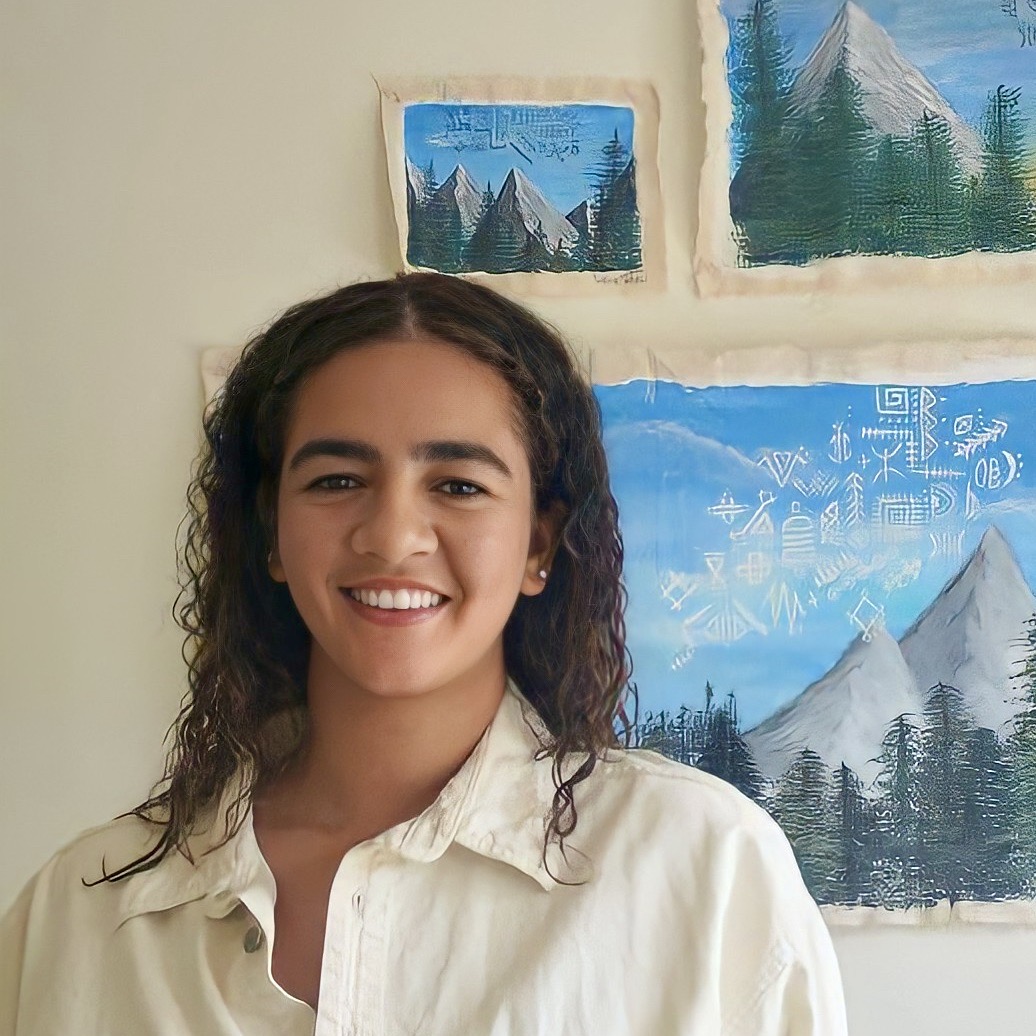
When we think of sustainability, the colour that most often comes to mind is green. Salma Tihani would tell you that true environmentalism includes many more colours than that.
Tihani is pursuing her MA in Education and Society in the Faculty of Education. For her thesis project, Tihani collaborated with the YMCA C-vert program to create the Evergreen Youth Lab, an initiative that encourages and supports youth climate activists of colour.
“My thesis project stemmed from my experience working with newcomer, Indigenous and a variety of other racialized students in formal and informal educational contexts,” says Tihani. “I remember deciding to do my project and then applying to graduate school when I worked as an Environmental Design Coordinator in a primarily newcomer youth school with grade 5 and 6 students. While working at the school, I co-constructed a school garden with them and spent the year exploring environment topics with new perspectives around justice and their experiences, identities as a main lens into how they understand environmentalism and climate change.”
Over the course of the school year, Tihani watched students gain confidence. “Students felt a sense of belonging in the classroom, by doing and acting on climate,” she says. “Some took leadership roles in different areas of the project and inspired others around their close networks to look at environmentalism with new perspectives.”
So motivated, Tihani began her Masters at McGill “to investigate and conduct more academic work around the identities of racialized youth and how that affects the ways they interact in climate spaces and act on climate justice.”
Breaking down barriers
Tihani says that youth climate change activists of colour face numerous barriers, including lack of space and funding, and “the stress, anxiety and cultural pressures of juggling white-centric mainstream ideologies with their own coloured identities.”
But it is essential that we break down these barriers, says Tihani, because youth and people of colour have long been the catalyst for positive change.
“Historically, racialized folks have been the driving force behind progress in social justice around the world, and youth, as a minority, also play a crucial role in systemic change,” she says.
“Youth activists feel an incredible burden to make change with little support. Youth activists of colour are also disproportionately impacted by this burden and are the driving forces for change in social movements and educating their peers and communities in informal settings about climate injustices because these issues are not being discussed in formal spaces,” says Tihani.
“By encouraging and supporting youth of colour in environmental spaces, we are able to look at environmentalism as a social justice issue with a multifaceted intersectional lens. They are the forces and the groundwork towards true change. Recognizing and directly empowering them economically and socially can make transformational change in how we tackle climate change.”
Fruitful collaboration
Tihani knew that for the Evergreen Youth Lab project, she needed to partner with an organization with strong community ties. Enter the YMCA’s C-vert program, a program in urban ecology for youth that trains young environmental leaders through community projects.
“I was especially interested in partnering with [C-vert] because of their dedication to reaching and supporting youth with a variety of backgrounds in accessible and innovative ways,” says Tihani.
The Evergreen Youth Lab gives teens the opportunity to learn more about the environment and nature while taking concrete action in their community. During the one-year programming, participants get together and choose activities, workshops and actions based on their interests. They create and manage projects with the help of an experienced leader, gaining independence, developing their leadership skills and acquiring new skills along the way. “These approaches were ones that resonated with me and seemed to align well with how I wanted to approach my research,” says Tihani.
Five workshops were held over the course of the school year, with the goals of engaging with youth in creative ways; to inspire thinking using various arts methods; and allowing participants to build a sense of community amongst themselves. At project’s end, participants created and launched the Evergreen Youth Lab website which showcases their work, tells their personal stories, and imparts the lessons they want to share with wider climate communities.
“It is important to allow space for youth to feel heard and for youth to break barriers within sustainability through storytelling. We hope that this website will be able to permeate climate spaces that are widely occupied and led by privileged white-counterparts,” says Tihani.
“As humans, we connect with one another through storytelling as an art form. This website allows climate leaders to see, hear and absorb the stories of our youth of colour, and to take action to make climate spaces more accessible, inclusive and less oppressive towards racialized people.”
Learn more about the Evergreen Youth Lab
